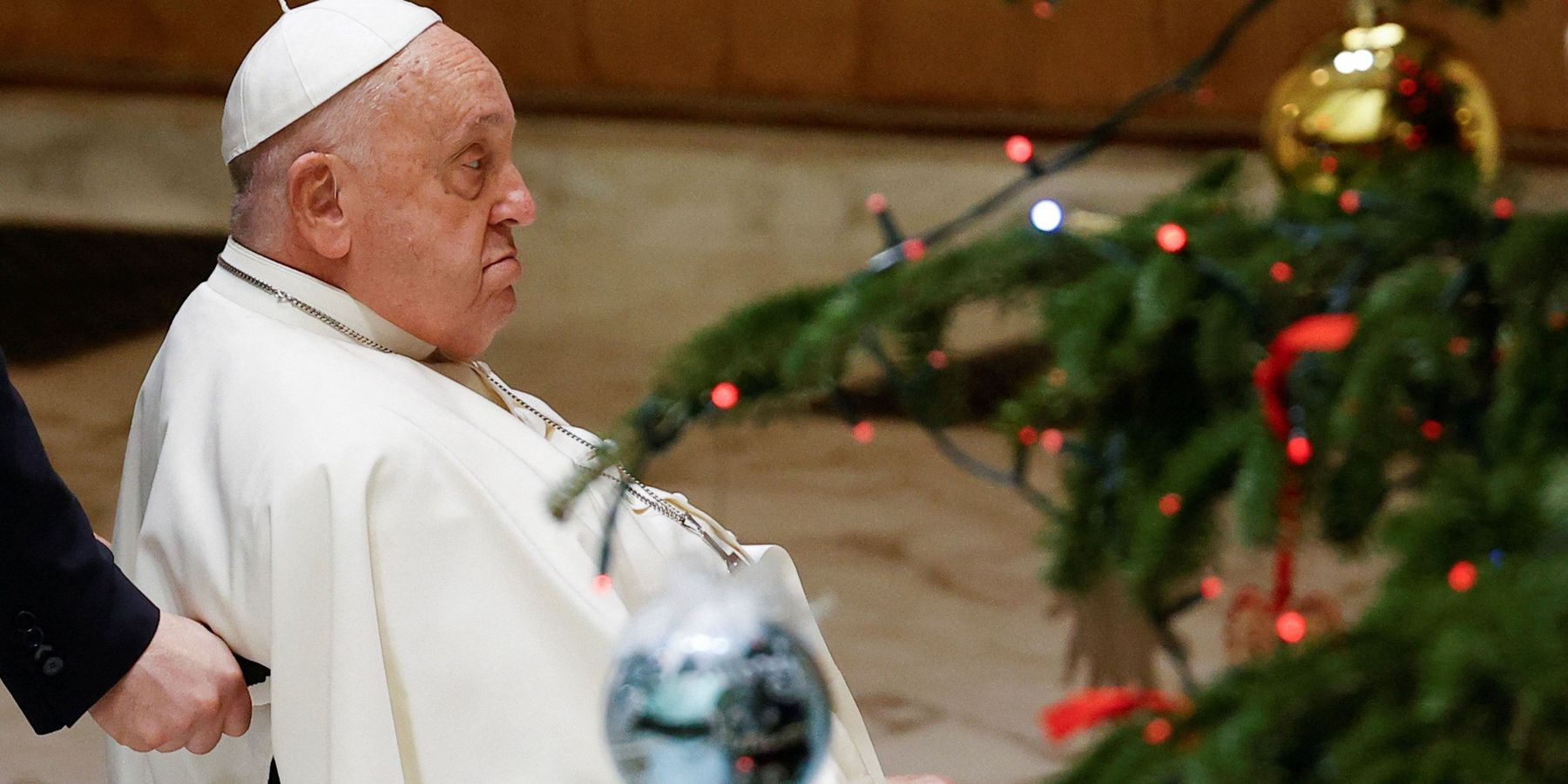Roman Catholic Pope Francis drew the ire of the Israeli government on the eve of Christmas week by calling the bombing and killing of children "cruelty."
On Saturday Francis responded to an Israeli airstrike that killed 25 Palestinians in Jabalia, including 12 members of one family, seven of them children. The airstrikes, particularly on Gaza's remaining hospitals and tent encampments housing displaced people, have been a daily occurrence.
“Yesterday children were bombed. This is cruelty, this is not war,” the pope told members of the government of the Holy See.
After his Saturday comments, Israel's foreign ministry shot back calling the Pope's remarks “particularly disappointing as they are disconnected from the true and factual context of Israel’s fight against jihadist terrorism — a multi-front war that was forced upon it starting on October 7.”
So the pope doubled down, remarking Sunday:
“And with pain, I think of Gaza, of so much cruelty, of the children being machine-gunned, of the bombings of schools and hospitals. What cruelty,” the pope said after his weekly Angelus prayer. He also called for a "ceasefire on all fronts, in Ukraine, in the Holy Land, throughout the Middle East and throughout the world."
Interestingly, there are still news organizations that will coyly pretend they do not know what Francis is talking about. From The Times of Israel report, which was bylined by staff and wire services: "It was unclear which specific alleged incidents he was referring to. Israel has long said it only targets terrorists, and that Hamas hides among civilian populations to protect itself."
Aside from a monthlong string of recorded incidents in which hospitals and shelters have been bombed by Israel in Gaza, two devastating reports immediately come to mind as a retort. One, the dozens of doctors and nurses who have returned from Gaza and testify to what they saw. Just one quote:
“One day, while in the E.R., I saw a 3-year-old and 5-year-old, each with a single bullet hole to their head. When asked what happened, their father and brother said they had been told that Israel was backing out of Khan Younis. So they returned to see if anything was left of their house. There was, they said, a sniper waiting who shot both children.”
Another:
“I saw many children. In my experience the gunshot wound was often to the head. Many had non-curable, permanent brain damage. It was almost a daily occurrence to have children arrive at the hospital with gunshot wounds to the head.”
Another:
“Nearly all new children admitted during my time died. Almost all of these deaths would not have happened if we had proper nutrition, infection control abilities (as simple as soap and hand sanitizer) and adequate supplies.”
The other report came out in the Israeli newspaper Haaretz this week. It quoted soldiers from the Israeli Defense Forces who admitted and described killing innocent civilians at the Netzarim corridor separating north from south Gaza. A quote from a "recently discharged Division 252 officer":
"We're killing civilians there who are then counted as terrorists...The IDF spokesperson's announcements about casualty numbers have turned this into a competition between units. If Division 99 kills 150 [people], the next unit aims for 200."
And another from a "veteran fighter from Division 252":
"One time, guards spotted someone approaching from the south. We responded as if it was a large militant raid. We took positions and just opened fire. I'm talking about dozens of bullets, maybe more. For about a minute or two, we just kept shooting at the body. People around me were shooting and laughing."
But the incident didn't end there. "We approached the blood-covered body, photographed it, and took the phone. He was just a boy, maybe 16." An intelligence officer collected the items, and hours later, the fighters learned the boy wasn't a Hamas operative – but just a civilian.
These are just two reports of many, anecdotal and institutional, about the "cruelty" of the Israel's war on Gaza, which has now claimed more than 45,000 lives and injured more than 107,000 over the last 14 months. Pope Francis has a pulpit and Christmas may be his best time to use it, given that the holiday's origins are in the West Bank, in the town of Bethlehem. But until governments outside the Vatican start taking these calls for ending war more seriously, the meek will hardly inherit the earth ; they will continue to suffer.
- Israel's conduct in the war will consume us all ›
- Report: Israelis using Gaza civilians as human shields ›
- An anti-war pope confronts a world in turmoil ›
- Pope Francis' legacy of inter-faith diplomacy | Responsible Statecraft ›
- Pope Francis worked miracles for US-Cuba, but not the biggest one | Responsible Statecraft ›
- Pope Francis was often mocked for railing against current wars | Responsible Statecraft ›
















